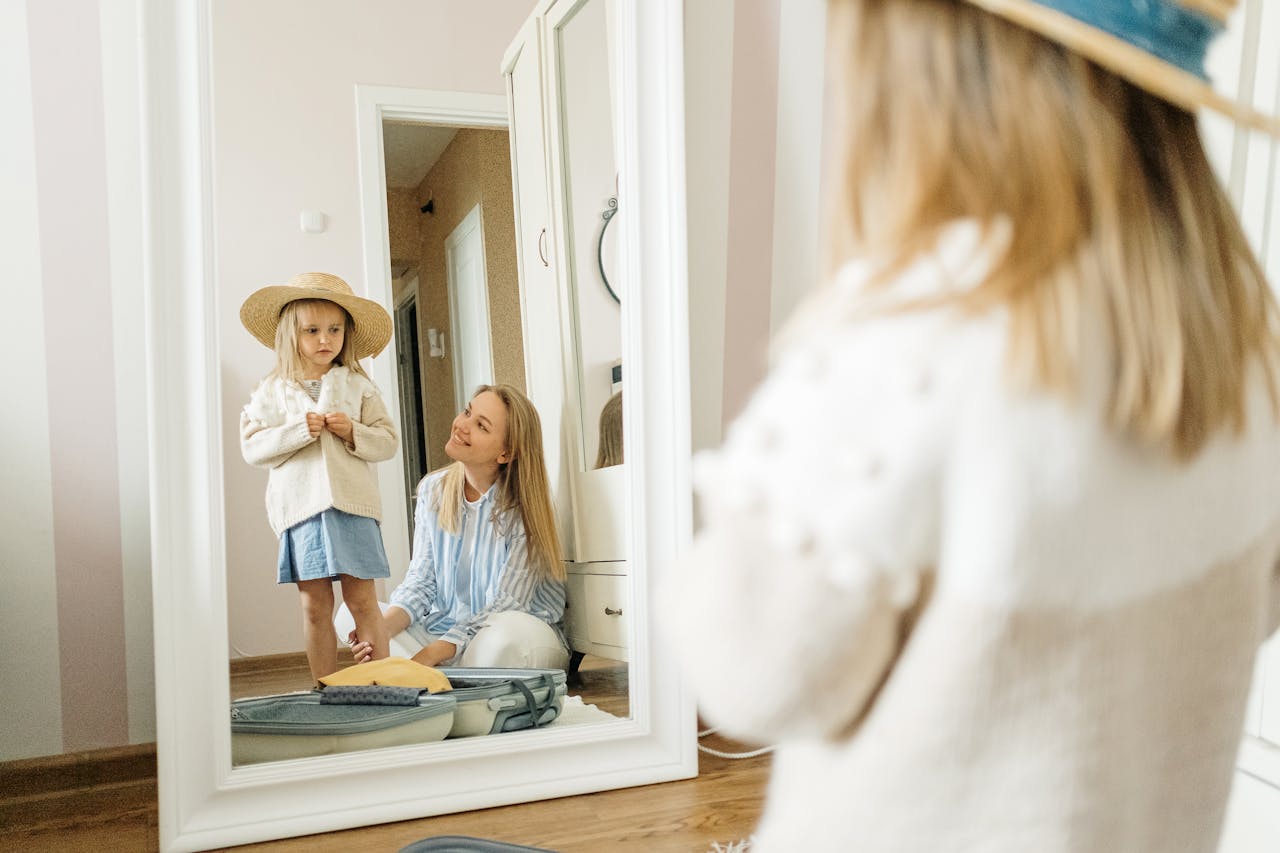
When you become a parent there’s a phrase you start throwing around: “My parents did __________, but I will never do that.” My parents said ___________, but I’ll never say that.
I’ll never yell.
I’ll never try to cut bedtime short.
I’ll never say, “Because I said so”
But then the strangest thing happens. You’re lecturing your child about needing to eat their vegetables if they want to grow big and strong, and all of the sudden, you hear your mother’s voice coming out of your mouth. Or your kid is relentless with the questions about why you have to wait thirty minutes after eating to swim, why shooting nerf guns at your brother in point blank range is a bad idea, why not drinking a full glass of water before bedtime will be a decision they (and you) will regret later and without even thinking, you say it. With no effort at all, it comes out of your mouth.
“Why? Because I said so.”
When I heard that as a kid, I thought it was a cop out. A way to shut down a conversation I knew my parents didn’t want to have. Now that I’m a parent myself, I sure that’s exactly what it is. It absolutely is a chance to hear no more talking. To stop the questions. To get a breather.
The problem is, it’s lazy parenting and though it buys me a few minutes of peace and quiet, I’m also pretty sure I’m not doing my kids any favors.
In his letter to the church in Ephesus, the apostle Paul writes saying, “Do not let any unwholesome talk come out of your mouths, but only what is helpful for building up the one need and bringing grace to those who listen.”
I’ve always heard this verse and focused on the first part of it: Don’t say anything unwholesome. Or to say it another way, nothing distasteful, nasty or unpleasant. It’s good advice, but if that’s the only standard for what I should say, that sets the bar pretty low.
But the second part of that verse raises the bar. Paul writes that we should only say what is helpful for building up. That paints a different kind of picture, doesn’t it? Now my words are tools, possibilities for creating something, or tearing something down. Basically, no word is neutral. So the question becomes what are our words accomplishing?
Interestingly, in ancient Hebrew the word “wisdom” came from the root word “to build”. Paul didn’t write his letters in Hebrew, but he would have known it, and I wonder, as he wrote to the church in Ephesus about building one another up, if he didn’t have in mind this idea of building as it relates to wisdom. Of how we ought to use our words to build wisdom into one another—for us as parents, to coach our kids in discovering wisdom. Suddenly, that makes my words weightier. And conversations with them even more important. And that fallback, “because I told you so”? Way less helpful.
I want to be careful with my words, not just to build my kids up, but to coach them in how to discover the right thing to do and the wise thing to do—on their own—without my voice ringing in the background to do just do what I said, because I am their mom and that makes me the boss, so stop asking questions.
If we are builders with our words, and we are architects of our children, we need to be teaching them not only with the words we are speaking aloud, but also with the words we are choosing not to say. Sometimes the building is teaching them to draw their own conclusions. Sometimes it’s engaging in longer conversation than we would like, sometimes it means we stop saying, “because I said so”, and buckle down for more words than we expected, because when it comes to learning how to be wise, this is what it takes.
I’ve found so much of parenting, more than I anticipated anyway, to be making a decision between taking the easy way, the short sighted way, and the way that envisions a future version of my kids that I want to be around. Kids who have grown up and grown into the type of people I am proud to be responsible for. When it comes to the words we speak, I have to parent with the long game in mind. I have to build and construct and instruct my kids towards becoming wise.
Our words are powerful. They are powerful in what they can do for others, but also in what they require of us: intention, time and care. And though they sometimes ask more of us than we like, I think we’ll find they do more for us long term when we put in the necessary time to use them as tools in shaping our kids and shaping their future into the best possible one.




